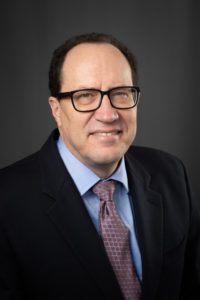New SSGA head makes splash in first week
Eric Wenberg wasted no time in his first days as executive director of the Specialty Soya and Grains Alliance.
In his second day on the job, Wenberg hit the ground running by arranging a meeting with agriculture officials from the Japanese Embassy in Washington, D.C.
Wenberg, in conjunction with the Minnesota Soybean Growers Association, discussed with the Japanese officials about the quality and cost-savings of northern-grown soybeans.
“The meeting went very well. It was light and informative, with lots of dialogue,” Wenberg said. “We’re pleased the Japanese were able to meet with us and engage in conversation, and we look forward to further exchanges.”
Japan has been a longtime purchaser of U.S. soybeans. In 2017, the country imported more than $1 billion worth of whole soybeans and soybean meal combined. Japan imports many commodities from the U.S. (namely soybeans, corn, beef, pork and wheat) and is the fourth largest global market for United States agriculture, importing more than $11.3 billion in 2018. Its food self-sufficiency ratio is also the lowest of any developed country, partly due to an aging population (the average Japanese farmer is 66 years old) and limited geographical space for agriculture (Japan is about the size of Montana and has a population of about 126 million).
Wenberg’s group spoke with the Japanese officials about testing for trace amounts of GM material in food grade soybeans and grain. Farmer leaders explained that lower minimum tolerances for trace purposes of GM material in conventional soybean shipments can create trade difficulties from all country suppliers for this type of food product; the lower level thresholds, Wenberg said, fail to increase safety or knowledge to the customer, but could impact foreign trade.
Later in the week, Wenberg signed onto a letter from MSGA thanking Counselor Hiroaki Kojima, and invited Japanese officials to visit Minnesota soybean farms this growing season. Wenberg said he received word after sending the letter that Japanese government won’t implement a lower threshold rule until April 2023.
“We are pleased the Japanese want to continue the conversation with our members, and we’re excited at the prospect of showing their officials how Minnesota farmers run their operations,” Wenberg said.
Wenberg’s day wasn’t done. Immediately following the Embassy visit, he and farmer leaders traveled to U.S. Department of Agriculture’s D.C. headquarters to speak with Farm Service Agency (FSA) Administrator Richard Fordyce, a former United Soybean Board director.
The group discussed the state of the agriculture economy, the Market Facilitation Program (MFP), the Trump administration’s proposed USDA budget cuts and Farm Bill implementation. Fordyce estimates Farm Bill sign-up will begin sometime in 2019.
“We have a secretary (Sonny Perdue) and undersecretary (Steve Censky), who demand this gets done sooner or later,” Fordyce said. “We have a lot of career folks here at USDA, who are just incredible and are doing everything they can to get the Farm Bill rolled out.”
Wenberg explained to Fordyce the mission of SSGA in the weeks following the launch of the company.
“This is really important work, to try to move nationally, to work across the whole industry in a structured way to promote market access and to help the industry better connect with the domestic customer,” Wenberg told Fordyce. “We’ll be working with this as part of the ‘soy family.’”
After a busy first week, Wenberg is traveling to the Midwest this week, where he’s meeting with North Dakota Soybean before heading to SSGA’s headquarters in Mankato, Minn.
“It’s certainly been a hectic, but exciting, start with some encouraging outcomes and follow-ups,” Wenberg said from the airport Monday morning before leaving for Fargo, N.D. “I can’t wait to learn more.”

 “We’re pleased that Eric has taken on the role as executive director,” said SSGA chairman Curt Petrich. “His broad knowledge and experience with agricultural exports throughout the world make him well positioned to lead SSGA and develop the organization as a leader in the global food industry.”
“We’re pleased that Eric has taken on the role as executive director,” said SSGA chairman Curt Petrich. “His broad knowledge and experience with agricultural exports throughout the world make him well positioned to lead SSGA and develop the organization as a leader in the global food industry.”

